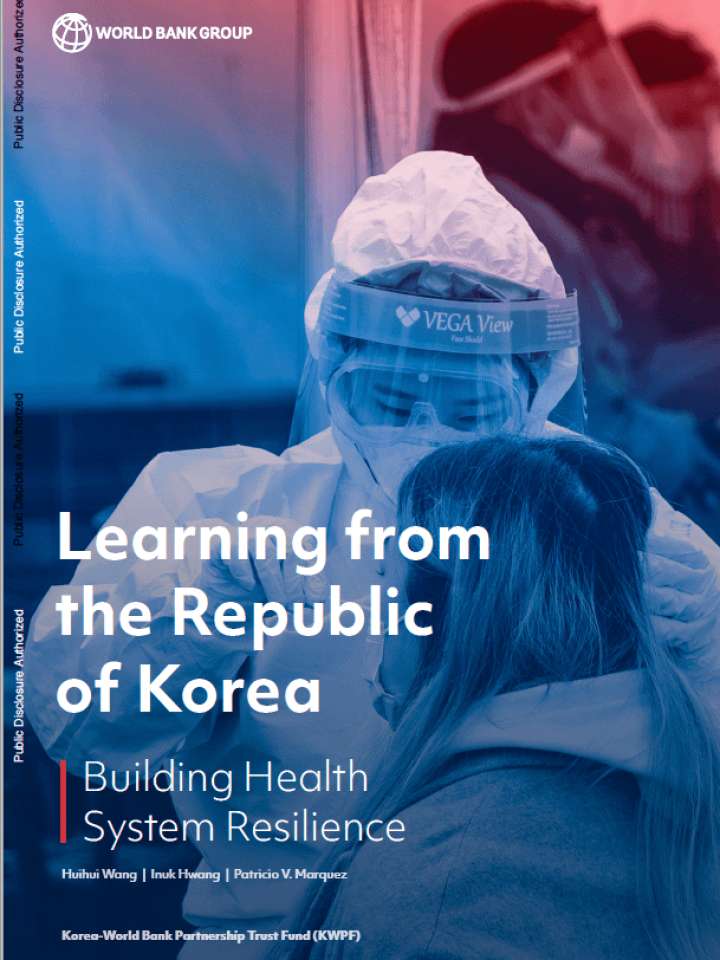Learning from the Republic of Korea: Building health system resilience
This report dissects the COVID-19 countermeasures successfully adopted in Korea. The response of the government of the Republic of Korea to COVID-19 has been heralded as among the most successful. In the first two years of the pandemic, the government was able to keep the size of the outbreak relatively small and the death toll relatively low.
The Korean experience with COVID-19 has demonstrated that five core capacities distinguish a resilient health system equipped to respond effectively during crisis and inter crises periods. These core capacities are public health functions, including monitoring the safety in the use of medicines, service delivery, community engagement and risk communication, supply chain management, and response readiness and emergency operations. These capacities can be enhanced and mobilized through strategic investment in four interlinked, enabling domains, as follows: governance, coordination, partnership, and policies; service organization and human resources; financing; and innovation and technology. Not only are the four domains linked, that is, investment in one domain has an impact on or is reliant on concurrent investment in another domain, but the investments must also be responsive to the unique economic, political, and sociocultural context in which the health system is situated.
Explore further
